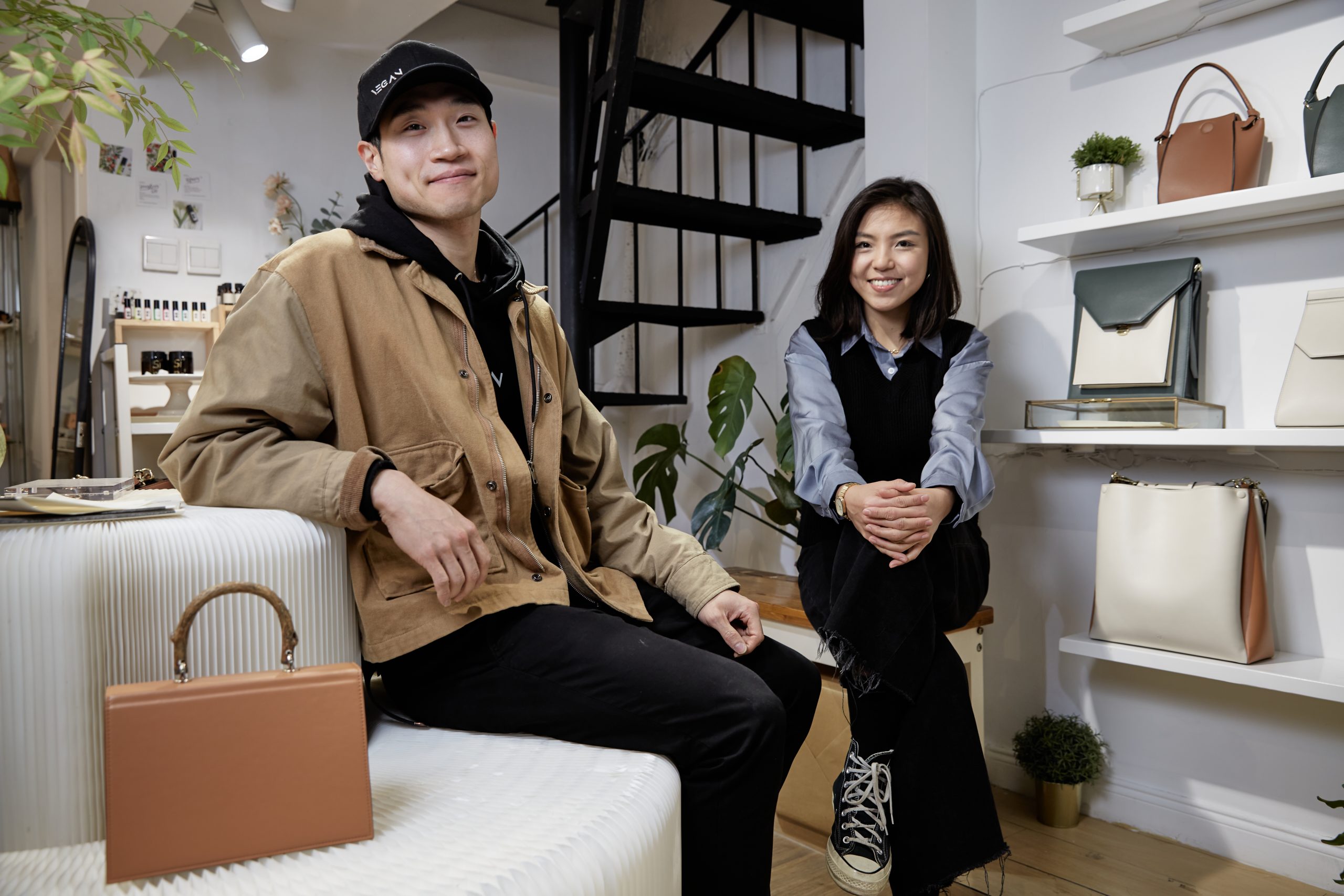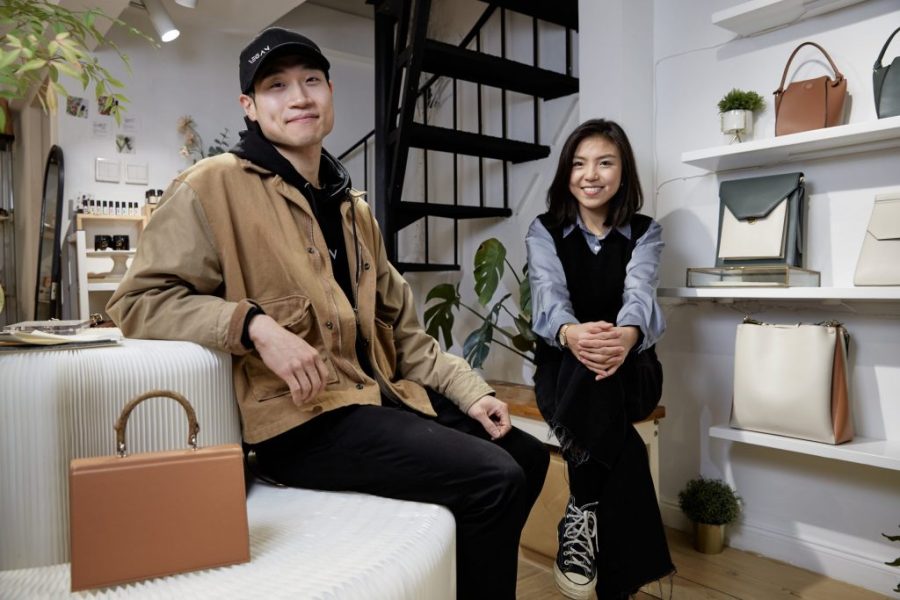For as long as anyone can remember, leather bags have reigned supreme in the world of fashion. Demand has grown so dramatically over the years, that leather is no longer simply a by-product of the meat industry. In fact, PETA estimates that roughly 1 billion animals – cattle, horses, sheep and more – are killed for their hides every single year.
Hoping to provide a more ethical and sustainable alternative to animal leather, Xenia Wong and Simpson Lee, transformed O.N.E, a Macao-based handbag line, into an entirely vegan operation in 2020.
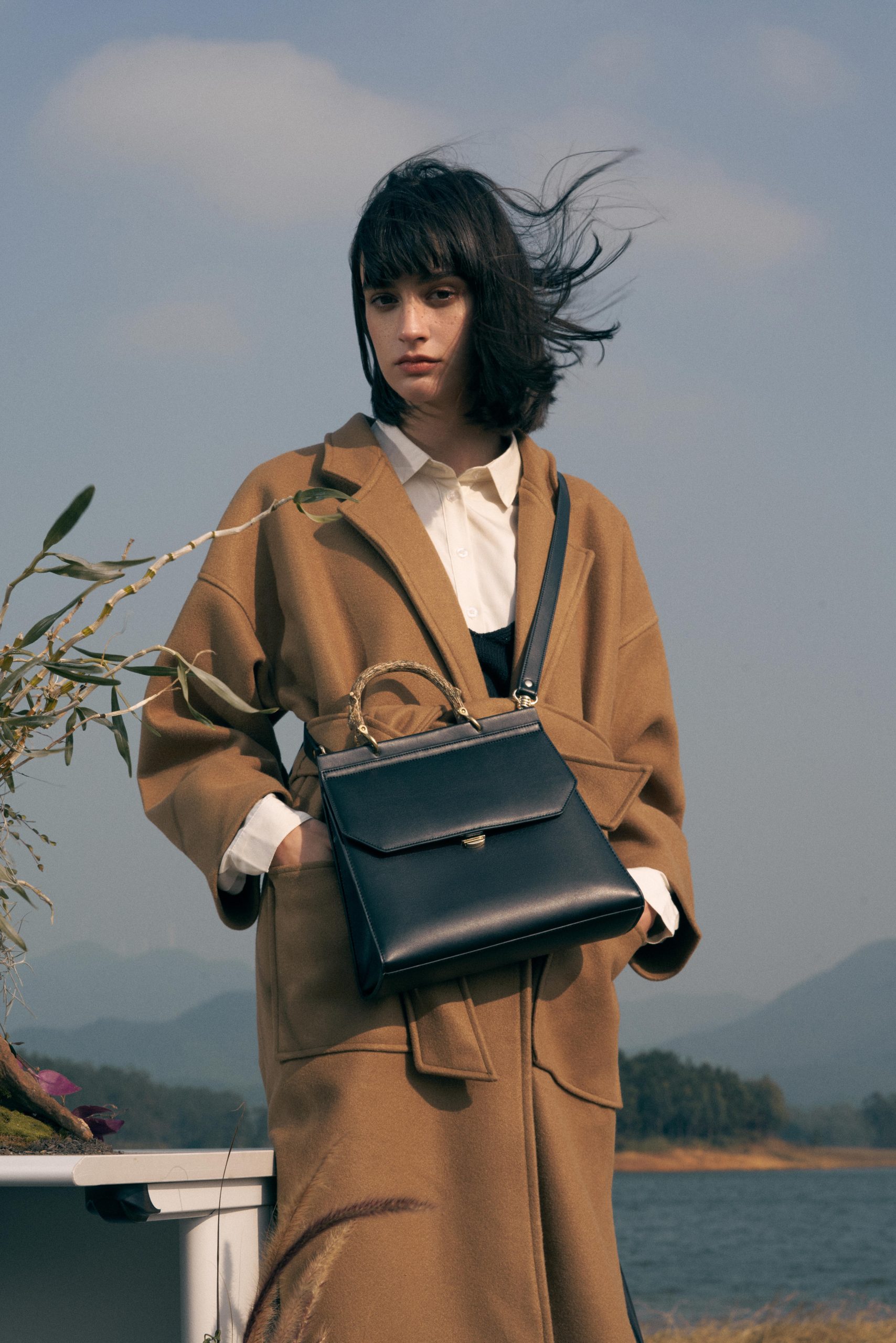
Featured in British Vogue, Vanity Fair, and Cosmopolitan, O.N.E’s designer eco-bags prove you don’t need leather to be stylish. We caught up with the co-founders to hear more about the inspiration behind the brand, the ethical dilemma posed by leather, and what they hope to see from the fashion industry in the future.
Macao News: What inspired you to start O.N.E?
Xenia Wong: We began our own line of leather handbags in 2015. In 2019, we were travelling in Scandinavia and came across a petition to ban the trading of dog meat in Vietnam. After signing the petition, we realised we were being hypocritical, which led us to do a lot of research and ask ourselves a lot of questions, trying to justify why it was OK to eat one animal and not another. About two weeks later, we both went vegan. We wanted the company to align with our personal vision, so in 2020, we rebranded the company as a 100 per cent pure vegan brand.
Macao News: What does the name ‘O.N.E’ stand for?
Simpson Lee: O stands for originality – all the designs are original and designed by Xenia. N stands for neutral, a neutral carbon footprint for the planet – everything we do we try to offset our footprint via giving back. And E stands for equal, as in we give equal moral consideration for all sentient beings. Essentially our ethos is that we are all ONE.
Macao News: How tough is it to create a completely vegan brand?
XW: Not as hard as we thought. The brand has a much stronger identity now. Before, we were just another genuine leather bag company; now, we are unique. We are the only pure vegan handbag brand in Macao.
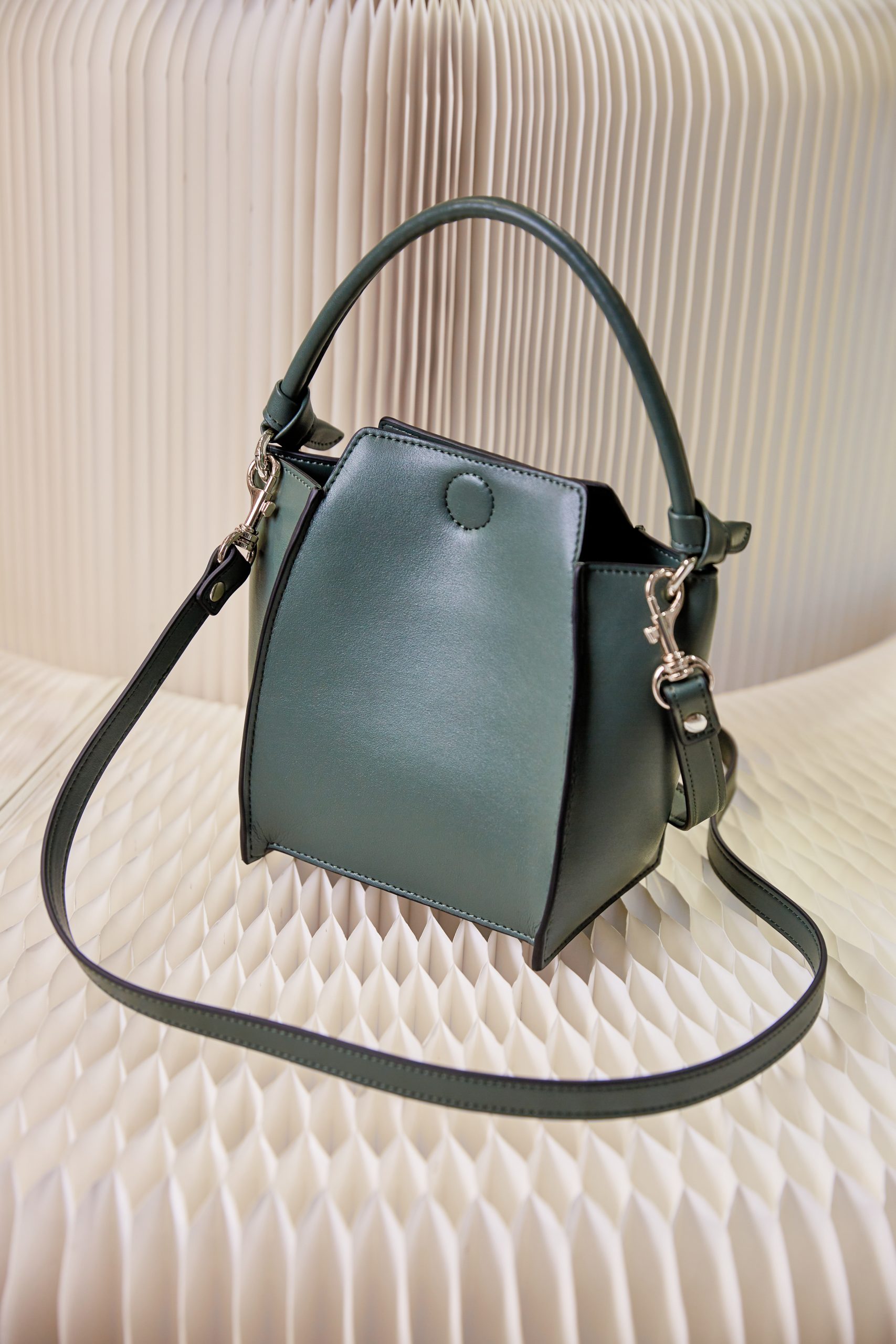
Macao News: What materials do you use instead of leather?
XW: It took a long time to find a quality vegan leather that was suitable for our products. We found O.N.E that closely replicates the texture and it’s even more functional – it’s both water and scratch-resistant. If you touch it, it’s hard to tell that it is not genuine leather.
SL: Vegan leather just means non-animal leather, but there are different qualities. The cheapest one is called PVC (basically an industrial plastic), which is rough and environmentally damaging.
Then there is PU, polyurethane, a higher-quality plastic which has more of a leather feel to it. However, if you use 100 per cent PU, the texture tends to be harder and it breaks easier. So we chose to use microfibre leather, which replicates the texture of animal skin, and then we put PU on top to replicate the feel of genuine leather. We crafted the inner linings with 100 per cent recycled plastic bottles, which have been melted down and spun into polyester fabric.
All our packaging is recycled and recyclable. Our dust bag comprises 100 per cent recycled plastic bottles, and the dust bag handle features vegan leather scraps from our bags.
Macao News: Tell us about your manufacturing process. How do you minimise waste?
SL: Right now, we have a manufacturing team in China – it’s a small family-run studio, and we know them all by name. We used to require four of five rounds of prototypes, going back and forth with the manufacturing team.
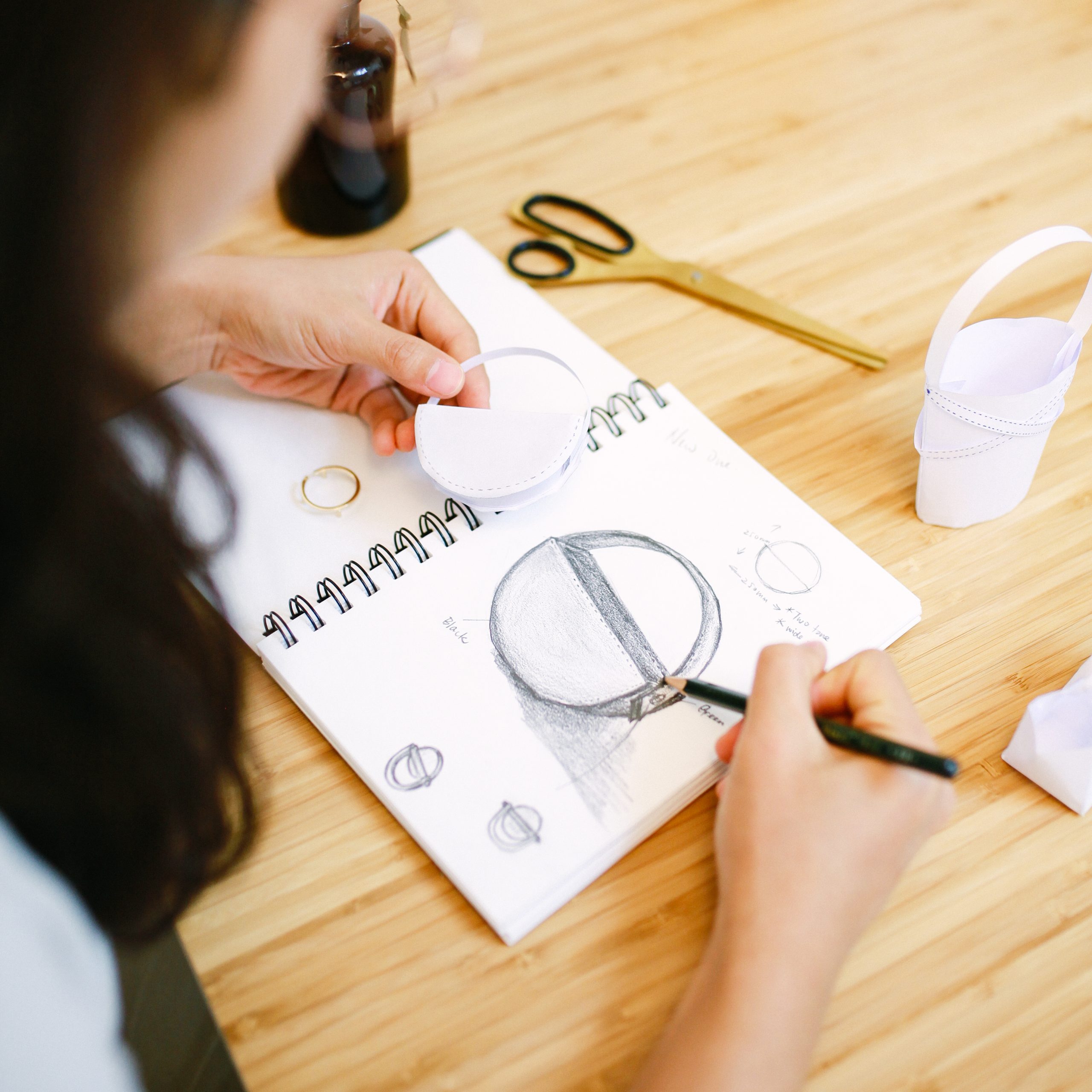
We use recycled paper to draw the design and make a small paper prototype to share with them, which has eliminated those first few rounds. They then use scrap leather to make one prototype. Now, we only need a maximum of two drafts before we launch the ready product.
Macao News: What’s been the biggest challenge you’ve faced so far?
SL: Sourcing a good vegan leather that didn’t compromise our brand or quality of our bags. There were a lot of things to think about – how can we be a brand that is cruelty-free but also high-end? How can we be sustainable? Which charities will we work with? I think we have overcome those earlier challenges to find our position in the market.
Macao News: How does O.N.E give back to the community?
SL: For every item that we sell, a tree is planted. We partner with a charity in the US, who collect funds from different companies. Every season, they plant seeds in different areas that need reforesting. Right now, we’re contributing to a project in Africa, where they hire people from the area to plant the trees. So they are not only helping the environment, but also creating jobs for local people.
We also donate 10 per cent of our sales to charity. We donate to animal charities, specifically to sanctuaries for farm animals. Farm animals tend to get the least amount of support, but actually need the most.
I volunteered for a farm sanctuary in Australia, and the amount of money they need to look after the animals is incredible. They are such big animals, so food and medicine really adds up. Australia was in a severe drought when I was there in 2019, so we didn’t shower for a week to ensure the animals had enough water to drink. I know that sanctuary is still struggling, so we are donating to them now. Each season we choose a different sanctuary that needs help.
Macao News: What do you think about recent sustainability trends? Fad or pivotal moment?
SL: I think it’s a bit of both. You have people who are genuinely concerned about global warming, climate change and animal welfare – these people are very vocal, and stir up public debate. Then there are people who are just following a trend.
Right now, it’s actually a cool thing to use sustainable fashion, to eat vegan food – not just in the West but here, too. It’s welcomed, because you need something to be popular for it to take off.
Vegetarians and vegans have traditionally been seen as hippies and tree huggers, so it’s definitely normalising the perception of veganism. It’s still more of a fad, but a positive one – and we hope it can and will become something more genuine.
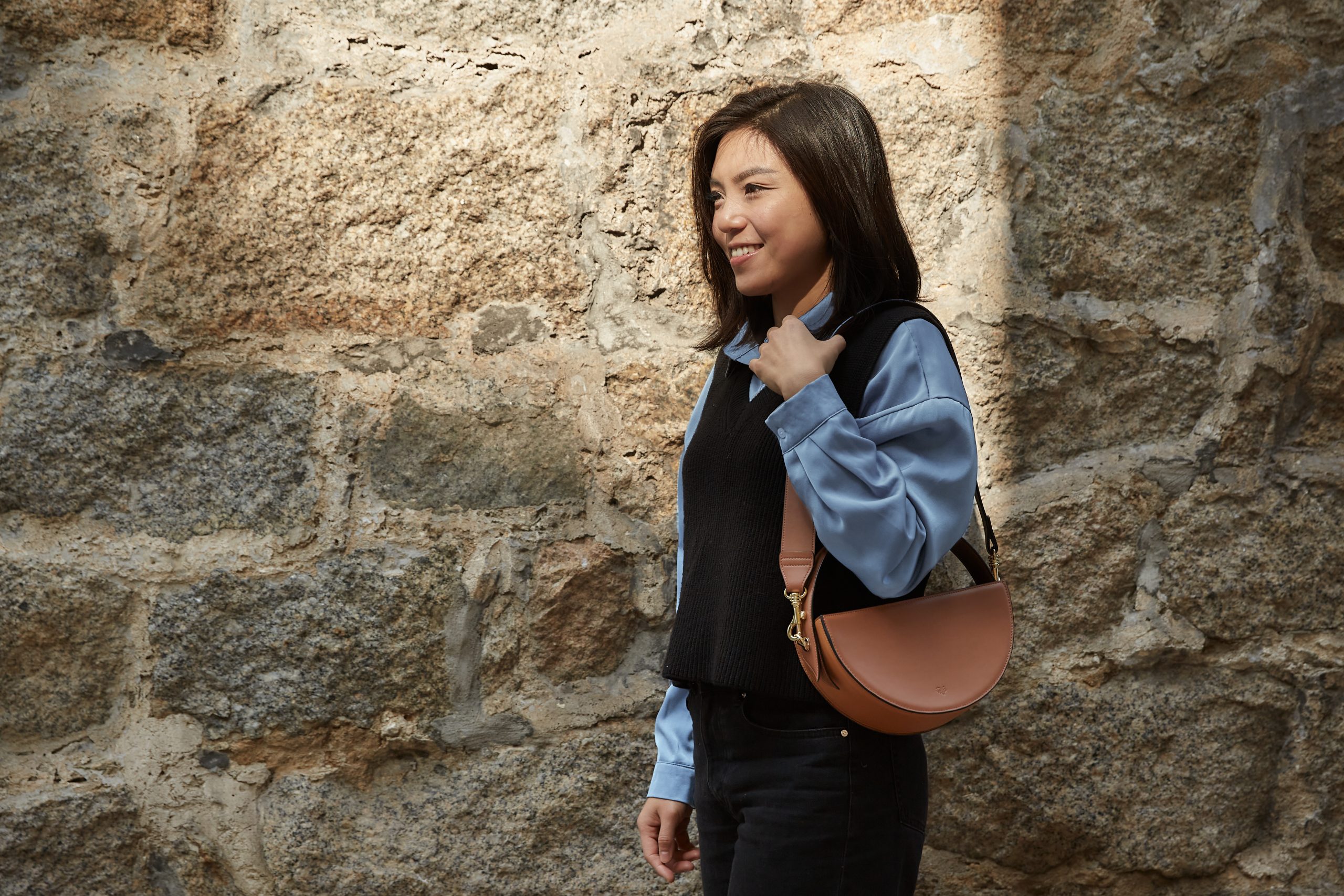
Macao News: Where do you see O.N.E in five years?
XW: We’d like to expand more in Asia, as well as introduce new products to include shoes and possibly a men’s collection.
SL: We’re currently looking to create our own trademarked leather, a product that strikes the balance between sustainability, design and functionality. In the future, all our products will be made from our leather. And of course, we hope to open a flagship store to sell it all in.
